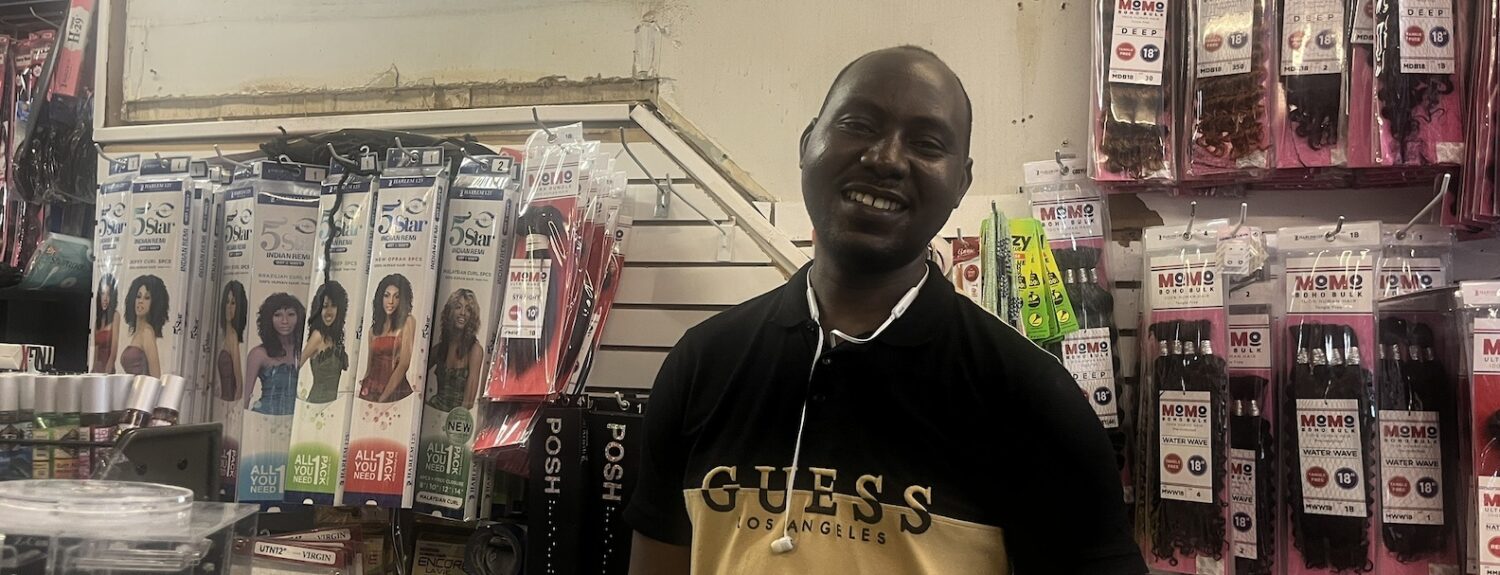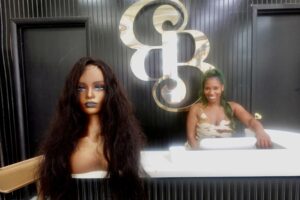Business Economics Fashion Race
Blacks own a fraction of beauty supply stores
By Keva Ellie
From behind the counter, a smiling Bashir Amadou waved goodbye to one customer while conversing with three customers at Sahel Beauty Supply, the hair extension, wig and cosmetics shop he owns and has run for 23 years in Brooklyn.
His customers feel like family, he said. Mainly, they are Black people, patrons of what is a relative handful of beauty supply stores owned by Black entrepreneurs.
“I think we should own most of them,” Amadou said.
It was not easy, Amadou said, to become one of those 3,000.“Sometimes, when you’re Black, [wholesalers] really don’t want to open your account.”
Discrimination happens. Her parents experienced it when they ran several beauty supply stores in Minnesota and Arizona, said Dafina Smith, who is Black. “So, for a very long time, it was basically Korean. If you weren’t Korean, you weren’t going to be able to become a middleman for it,” said Smith, founder and CEO of New York-based luxury extension supplying company, Covet & Mane. Its celebrity clients include actors Zoe Saldaña, Zendaya, and Jessica Alba.
Tamara Laureus, owner of Boujee Beauty Supply on West Street in Greenpoint, Brooklyn, shares Smith’s perspective. Also, said Laureus, whose beauty salon is across the street from the supply store, being a Black woman shop owner helps her relate to Black customers. “We understand the texture of [our] hair, we understand what we really want. I’m not selling this to you because I need it to sell. I’m selling it to you because you need it,” she said.
Roughly 3,000 of the nation’s 9,000 beauty supply stores targeting Black customers were owned by Black people, said Sam Ennon, CEO of the Black Owned Beauty Supply Association.
Black women spend nine times more on ethnic hair products than non-Black consumers, according to an analysis published in the International Journal of Women’s Dermatology in 2023. Its researchers were at Morehouse School of Medicine, Vanderbilt University Medical Center, the University of Illinois, Chicago College of Medicine and the Perelman School of Medicine.
Ninotchka Lamont said she prefers buying from Black-owned stores, but she was shopping in July at Wow Beauty Supply, which is not Black-owned. “When it’s Black-owned,” Lamont said, “I’m more open to asking questions because I know [they will] probably have the answer as opposed to most other supply stores where they are scrambling for the answer.”
It’s important for Black customers to spend their money at Black-owned shops, she said. “I feel like Black people have been degraded for so long and, now that we’re up and coming, I think there should be big support.”
Sahel Beauty Supply’s Amadou agreed. He has, he said, advised other Black beauty supply store owners in Brooklyn’s Flatbush neighborhood and ones in other states where to source the products they sell.
Just as important as watching businesses like theirs be supported and grow is the sense of community that their businesses inspire.
“There’s an importance of building in and keeping the cultural knowledge, the sisterhood that … comes,” Covet & Mane’s Smith said. “I always say the thing that comes with [sitting] … between your friends or your mom’s or your sister’s legs when they’re taking out your weave or your braids. It’s cultural. It’s more than just like a business.”



